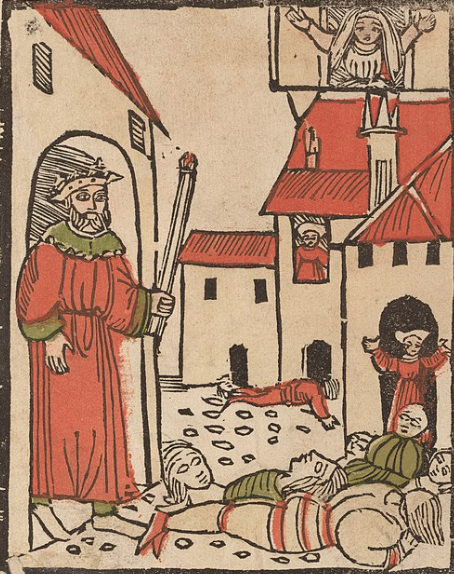“At midnight the Lord struck down all the firstborn in Egypt, from the firstborn of Pharaoh, who sat on the throne, to the firstborn of the prisoner, who was in the dungeon, and the firstborn of all the livestock as well.” Exodus 12:29
“Why did God kill all those people?”
This was the question my daughter asked last night after hearing about the last plague in Exodus 12.
But that wasn’t her only question.
“Will God kill me if I disobey?”
Even tougher.
And finally: “Why did God kill all those people and not just Pharaoh’s son?”
Each weeknight, my wife reads our daughter a Bible story before she takes a bath. The book they’re reading was my wife’s when she was a kid, and it goes through the Bible in order. Last night, they completed the story of the ten plagues.
Typically, I let my wife lead our daughter have this Bible story time to themselves. It’s important for our daughter to know that she can go to her mom for spiritual instruction. Plus, my wife is just a great teacher, and my daughter really loves to spend time with her.
Usually, I’ll be preparing our daughter’s bath, laying out her pajamas, putting toothpaste on her toothbrush, filling her little allergy medicine cup, and refilling her nighttime water bottle. When I walked back into the living room, I heard my wife say, “Ask daddy.”
My wife has done a really good job of answering our daughter’s difficult questions. And, boy, do some of the stories in Genesis provoke them!
You’ve got Cain and Abel, Abraham and Isaac, and Jacob and Esau just to name a few. These stories feature broken people doing things, sometimes at God’s request, and I’m glad that Catherine’s asking questions. It shows she’s really listening.
So here were her three tonight:
“Why did God kill all those people?”
“Will God kill me if I disobey?”
“Why did God kill all those people and not just Pharaoh’s son?”
These questions are more much more difficult in the wake of COVID-19 where my daughter has family members who have caught the “germs” and sees the effects of this disease all around her.
I didn’t have good answers to her questions.
When my daughter asks questions like these, it’s always tempting to try to offer a perfect answer, to think that I have the ability to banish doubt completely from her mind.
I need to avoid that temptation. God doesn’t need me to defend Him.
It’s my responsibility to show Cat that I believe God, that God’s word — even when it’s difficult — speaks the truth, and that God is a source of peace when we’re troubled by tough questions.
So I asked some questions myself.
“How many times did Moses talk to Pharaoh about letting his people go?”
“A lot.”
“Did Pharaoh listen?”
“No.”
“What did Pharaoh have to do to avoid the plague?”
“Let the people go.”
I told her that Pharaoh should have obeyed. More than that, Moses knew the way to avoid punishment. If anyone had asked him and applied the passover rules, they would have avoided punishment too.
This wasn’t a perfect answer. It gave Cat peace for the night, however.
I am so thankful that my daughter wants to understand God. I am awed by the responsibility of helping point her to God. I pray for the humility to listen to her questions and to give her answers, even when I’m not fully sure of the answers.
I’m glad I know the One who has them.

